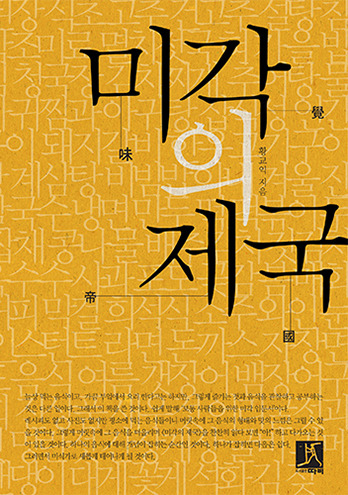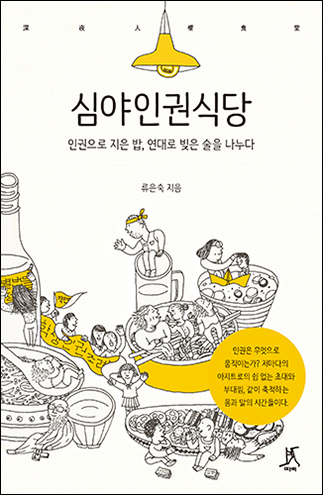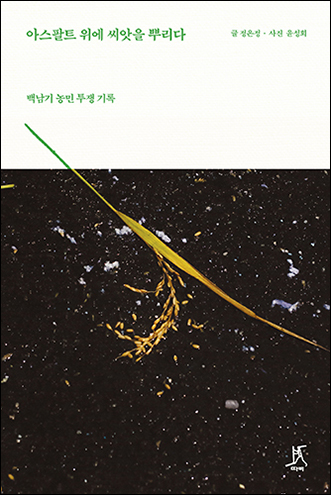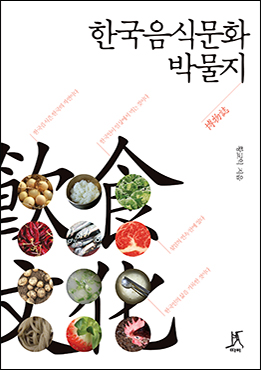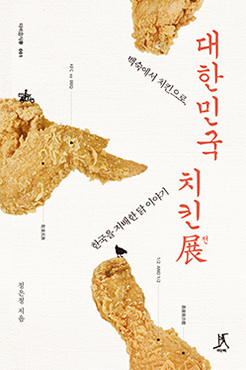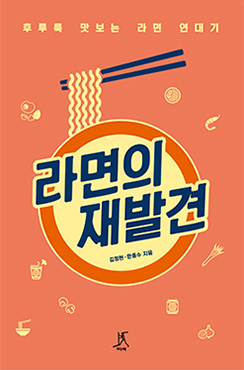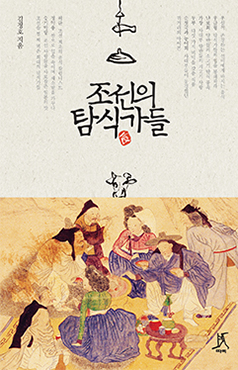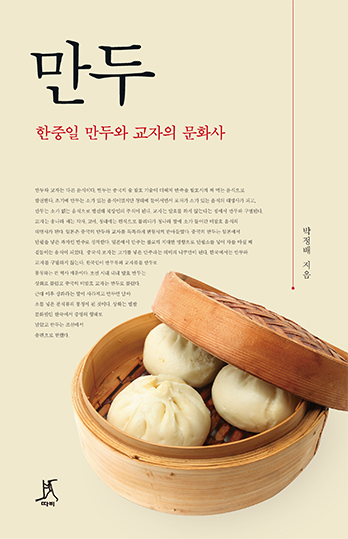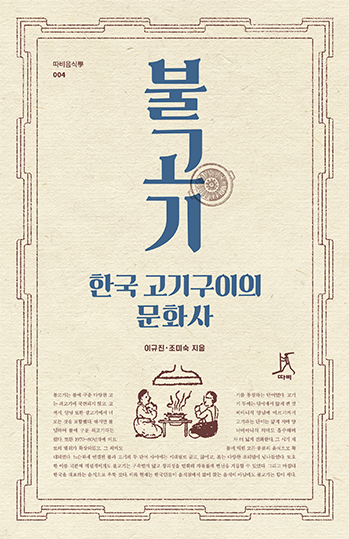|
Korean Publishers
Tabi Books Delicious Books that Satisfy Your Curiosity about Food with Culinary Delights
2021.10.05
Food is one of the areas that is receiving much attention in various media today. Stories of food, which is an inescapable topic for all, are fun. They are mystically charming, too, as it opens up a new world that inspires curiosity. The name of the publisher “Tabi” comes from an agricultural tool. Since food began in agriculture, it has become the publisher’s name because it makes humanitarian books on food. Starting with the first book, The Empire of Taste, in 2010, publisher Tabi Books has been publishing books about food covering various and broadly relevant topics, telling stories about food that we must know or enjoy. Here’s a tasty interview with publisher Tabi Books.
Logo of publisher Tabi Books
Please introduce Tabi Books to overseas publishers.
Publishing the first book, The Empire of Taste, in 2010, Tabi Books has been mainly interested in culinary culture and Korean society. We look at what Koreans eat and how, and how Korean society and food are interrelated. As people and food are knitted like a grid made of history and the world, we are also interested in the food cultures of the world, including our neighboring countries, and how they have changed as well. We’re also interested in agriculture because this is where food started. So, we’ve been publishing about food, agriculture, culinary culture, and the food industry.
Why did Tabi Books choose to become a food-specialized publisher?
There is a common saying in Korea - “It’s all about eating and living after all.” Eating is life, in a word. We thought that we could well explain how people live their lives through food. We believe that there is a part about food in travel programs on television because food is the mirror that best reflects the nature and culture of society. Our goal is to look at the world in which we live through books.
Tabi Books have been publishing about food, agriculture, culinary culture, and the food industry.
Food is fundamentally linked to people’s lives. Food can be linked to many subjects, from satisfying pleasure and health to cultural and environmental issues worldwide. While Tabi Books covered different genres in this regard, what is the implication behind each book you published?
Our first book, The Empire of Taste, focused on expressing the taste of various foods. And Food Inc. covers environmental issues and inequality surrounding food. Furthermore, Night Restaurant of Human Rights talks about human rights through people whom a human rights activist met during meals. The Story of Chicken in Korea takes a broad look at issues in Korean society, such as the vertical integration of agriculture and the part-time jobs with fried chicken – which Koreans’ love – as the motif. Tabi Books also takes a serious approach to the environment and unequal capital issues through agriculture. The best example is Planting Seeds on Asphalt, which talks about the reality of Korea’s agricultural industry and peasant movements through the story of Baek Nam-Gi, who passed away during a demonstration.
The Empire of Taste, Night Restaurant of Human Rights, Planting Seeds on Asphalt
Tabi Books has recently published Dumplings: Cultural History of Dumplings and Jiaozi in Korea, China, and Japan. Can you briefly tell us about this book and talk about other countries’ culinary culture? And how is Tabi Books doing globally?
Dumplings: Cultural History of Dumplings and Jiaozi in Korea, China, and Japan talks about how dumplings in the three countries are different and similar and how dumplings, enjoyed across the world, were born. The representative book which presents foreign foods is Conquering the Ruler’s Taste. Through world history, it introduces the cases and stories of how colonial food became the representative food of the ruling country, such as couscous, borscht, curry, goulash, satay, and salted pollack roe. This book is scheduled to be published in Taiwan as well. In addition, Retro Okinawa talks about the food that originated in the history of Okinawa. As for the books that were introduced abroad, we want to choose History of Korea’s Culinary Culture. Published in Taiwan, it showcases 100 representative Korean dishes in an easy and fun manner.
Publisher Tabi Books has been making various books about food ranging from those familiar to us like fried chicken and ramen to those about social issues related to rice prices and farmers – not to mention a food encyclopedia. So what is the most important thing when it comes to choosing a topic?
The thing we put the highest priority on when we plan a book is food and our lives. Food is inseparable from our lives. There is a culture created by food, and food created by culture. We look at both together. The reason Tabi Books publishes books about agriculture is because food started with agriculture. Since we believe that human sustainability depends on sustainable agriculture, we pay attention to the sustainable lives of people in agriculture and fishing, as well as farmers.
We also hope that people will find Tabi Books’ books useful as they reflect on the significance of our daily food.
Food attracts curiosity because it is a familiar subject to all, but it could be tricky to discuss it. So what would be the ways to read and use Tabi Books’ books in a more interesting and helpful way?
As we have food every day, it is not difficult to approach it. First, if you have food that you like or are interested in, you may look for books about it. Good examples are The Empire of Taste and History of Korea’s Culinary Culture, written by taste columnist Hwang Gyo-Ik. They are short in length, and in which you can easily read about the history and characteristics of food that Koreans enjoy. What’s more, The Story of Chicken in Korea, Rediscovery of Ramen, and Epicures of Joseon would be good introductory books to learn history and society through food. You may also feel like going on a journey through the food while reading Tasting Kyushu, Retro Okinawa, or Spicy India. They would be a good choice for you as they are not limited to introducing nice restaurants, but rather add some talks about their society’s history, which is good for traveling or building knowledge.
History of Korea’s Culinary Culture, The Story of Chicken in Korea, Rediscovery of Ramen, Epicures of Joseon
What are some popular books that Tabi Books can confidently recommend?
As explained earlier, The Story of Chicken in Korea, a book about Koreans’ favorite fried chicken, has been a steady-seller among readers. Fried chicken has become the #1 Korean food the world likes, and we hope the book can promote more food throughout the world. Meanwhile, Rediscovery of Ramen features Korean ramen that is currently at the center of the K-food frenzy. It talks about how instant noodles developed in Japan came into Korea and what ramen means for Koreans. It also introduces stories about Korean ramen, which is popular around the world today.
What are your recently published works? Can you introduce them to us?
They are Dumplings: Cultural History of Dumplings and Jiaozi in Korea, China, and Japan mentioned earlier and Bulgogi: Cultural History of Grilled Meat in Korea. The latter one talks about how bulgogi, one of the most popular Korean foods in the world, along with kimchi, was born and settled into society. To make bulgogi, people put a grill on the table and cook it directly for dining. And the book discusses how this has settled down as the first image that comes to mind when you think about bulgogi. We’re thinking of covering stories about rice that Koreans eat daily and the drinking culture in the future.
Dumplings: Cultural History of Dumplings and Jiaozi in Korea, China, and Japan, Bulgogi: Cultural History of Grilled Meat in Korea
What is Tabi Books doing for promotion abroad, and what is the response from local markets?
We have not made any special efforts in that regard, but there have been inquiries on exporting copyright from Taiwan and China. We have been responding quickly to such requests from foreign publishers. We believe that there would be better results if we made better books than now about the food we enjoy.
What is Tabi Books’ future plans?
We will keep reading the world and people through the books like now. We also plan to approach the food that is valued worldwide as well, not being limited to Korean food. And we plan to introduce world dishes to Koreans by translating and publishing good foreign books. Thank you.
Organized by Kim Young-Ihm
#Tabi Books#Food#agriculture#history#humanitarian books |
Pre Megazine
-

Jakkajungsin Publishing Co.
VOL.69
2024.04 -

Writer Yun Jung-Eun
VOL.69
2024.04 -

Jumping Books Publishing House
VOL.68
2024.03 -

Writer Kim Hwa-Jin
VOL.68
2024.03 -

Publisher Hyohyung
VOL.67
2024.02 -

Writer Minha
VOL.67
2024.02 -

Almond Publishing
VOL.66
2024.01 -

Writer Kwon Jung-Min
VOL.66
2024.01 -

Hakgojae Publishers
VOL.65
2023.12 -

Writer Kim Hye-Jung
VOL.65
2023.12 -

Eidos Publishing House
VOL.64
2023.11 -

Writer Hwang In-Chan
VOL.64
2023.11 -

Munhakdongne
VOL.63
2023.10 -

Writer Chang Kang-myoung
VOL.63
2023.10 -

Happywell Publishing
VOL.62
2023.09 -

Writer Baik Soulinne
VOL.62
2023.09 -

Dasan Contents Group (Dasan Books)
VOL.61
2023.08 -

Writer Lim Kyoung-Sun
VOL.61
2023.08 -

SpringSunshine Publishing Co.
VOL.60
2023.07 -

Writer Lee Kyung-Hye
VOL.60
2023.07 -

Human Cube
VOL.59
2023.06 -

Doctor Jeong Jae-Seung
VOL.59
2023.06 -

Anonbooks
VOL.58
2023.05 -

Writer Son Bo-Mi
VOL.58
2023.05 -

Namhaebomnal
VOL.57
2023.04 -

Writer Kim Bo-Young
VOL.57
2023.04 -

Hugo Publishing
VOL.56
2023.03 -

Writer Cho Kwang-Hee
VOL.56
2023.03 -

Balgeunmirae Publishing Co.
VOL.55
2023.02 -

Writer Lee Byung-Ryul
VOL.55
2023.02 -

Wisdom House, Inc
VOL.54
2023.01 -

Writer Jeong Jia
VOL.54
2023.01 -

Humanitas
VOL.53
2022.12 -

Writer Kim Yeon-Su
VOL.53
2022.12 -

Songsongbooks
VOL.52
2022.11 -

Writer Eun Hee-Kyung
VOL.52
2022.11 -

Bombom Publishing Co.
VOL.51
2022.10 -

Writer Jiwon Yu
VOL.51
2022.10 -

Hangilsa Publishing Co., Ltd.
VOL.50
2022.09 -

Writer Kim Won-Young
VOL.50
2022.09 -

Moksu Publishing Company
VOL.49
2022.08 -

Writer Yoo Sun-Kyong
VOL.49
2022.08 -

Next Wave
VOL.48
2022.07 -

Writer Park Sang-Young
VOL.48
2022.07 -

A Thousand Hopes
VOL.47
2022.06 -

Writer Bora Chung
VOL.47
2022.06 -

Woongjin ThinkBig
VOL.46
2022.05 -

Dr. Oh Eun-Young
VOL.46
2022.05 -

JECHEOLSO Publishing House
VOL.45
2022.04 -

Writer Jang Ryu-Jin
VOL.45
2022.04 -

Changbi Publishers
VOL.44
2022.03 -

Writer Kim Ho-Yeon
VOL.44
2022.03 -

Mati Books
VOL.43
2022.02 -

Writer Lee Kkoch-Nim
VOL.43
2022.02 -

Picturebook Gongjackso
VOL.42
2022.01 -

Writer Kim Sang-Wook
VOL.42
2022.01 -

Writer So-yeon Park
VOL.42
2022.01 -

Writer Yoo Eun sil
VOL.42
2022.01 -

Kungree Press
VOL.41
2021.12 -

Writer Kim Lily
VOL.41
2021.12 -

Writer Park Yeon-jun
VOL.41
2021.12 -

Writer Yi Hyeon
VOL.41
2021.12 -

A deeper world told through picture books 'Iyagikot Publishing (Story Flower)'
VOL.12
2019.06 -

Author Jeon Min-hee
VOL.12
2019.06 -

Illustrator Kim Hwan-Young
VOL.13
2019.07 -

Travelers sailing through the sea of knowledge - 'Across Publishing Group Inc.'
VOL.13
2019.07 -

Genre Novel Publisher 'Arzak Livres'
VOL.14
2019.08 -

Author Lee Yong-han
VOL.14
2019.08 -

Wookwan Sunim
VOL.15
2019.09 -

East-Asia Publishing
VOL.15
2019.09 -

Author Jo Jung-rae
VOL.16
2019.10 -

EunHaeng NaMu Publishing
VOL.16
2019.10 -

Writer Heo Kyo bum
VOL.40
2021.11 -

Writer Kim So-Young
VOL.40
2021.11 -

Author-illustrator Kim Sang Keun
VOL.40
2021.11 -

ACHIMDAL BOOKS
VOL.40
2021.11 -

Author Kang Gyeong-su
VOL.17
2019.11 -

Moonji Publishing Belongs to the Literary Community
VOL.17
2019.11 -

Author Kim Yun-jeong
VOL.18
2019.12 -

I-Seum
VOL.18
2019.12 -

Kim Cho-Yeop
VOL.19
2020.02 -

Creating a window into the future with books
VOL.19
2020.02 -

Author Serang Chung
VOL.20
2020.03 -

Hey Uhm
VOL.20
2020.03 -

Writer Lim Hong-Tek
VOL.21
2020.04 -

BIR
VOL.21
2020.04 -

Writer Song Mikyoung
VOL.39
2021.10 -

Author-illustrator Kim Dong Su
VOL.39
2021.10 -

Writer Lee Seula
VOL.39
2021.10 -

Tabi Books
VOL.39
2021.10 -

Writer Kim Soo-hyun
VOL.38
2021.09 -

Author-illustrator Lee Myoung Ae
VOL.38
2021.09 -

Writer Hwang Sunmi
VOL.38
2021.09 -

Kidari Publishing Co.
VOL.38
2021.09 -

Writer Sohn Won-Pyung
VOL.22
2020.05 -

Woods of Mind's Books
VOL.22
2020.05 -

Writer Heungeul
VOL.23
2020.06 -

Gloyeon
VOL.23
2020.06 -

Maumsanchaek
VOL.24
2020.07 -

Winners of the 2021 Bologna Ragazzi Award
VOL.37
2021.08 -

Picture book artist Lee Suzy
VOL.37
2021.08 -

Author-illustrator Yi Gee Eun
VOL.37
2021.08 -

Hubble
VOL.37
2021.08 -

Writer Baek Se-Hee
VOL.25
2020.08 -

Bearbooks Inc.
VOL.25
2020.08 -

Author Baek Hee-Na
VOL.26
2020.09 -

Yuksabipyoungsa
VOL.26
2020.09 -

Writer Kang Hwa-Gil
VOL.27
2020.10 -

Kinderland (Bandal)
VOL.27
2020.10 -

Writer Ha wann
VOL.36
2021.07 -

Author-illustrator Myung Soojung
VOL.36
2021.07 -

Writer Jung Yeo-Wool
VOL.36
2021.07 -

Publisher EcoLivres
VOL.36
2021.07 -

Writer Lee Geumi
VOL.28
2020.11 -

Sakyejul
VOL.28
2020.11 -

Writer Kim Keum-Hee
VOL.29
2020.12 -

Geulhangari
VOL.29
2020.12 -

Writer Cheon Seon-Ran
VOL.30
2021.01 -

Hyang Publishing House
VOL.30
2021.01 -

Writer Lee Hee-Young
VOL.31
2021.02 -

Sanzini
VOL.31
2021.02 -

Publisher Prunsoop
VOL.32
2021.03 -

Writer Sim Yun-Kyung
VOL.32
2021.03 -

Hanbit Media
VOL.35
2021.06 -

Hyeonamsa
VOL.33
2021.04 -

Author-illustrator Noh Inkyung
VOL.33
2021.04 -

Writer Cho Won-Jae
VOL.35
2021.06 -

Writer Kim Jung-Mi
VOL.34
2021.05 -

Safehouse Inc.
VOL.34
2021.05





